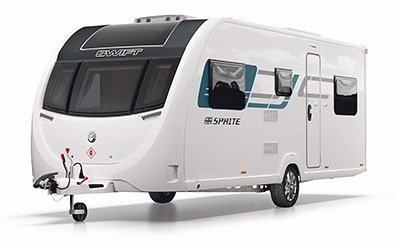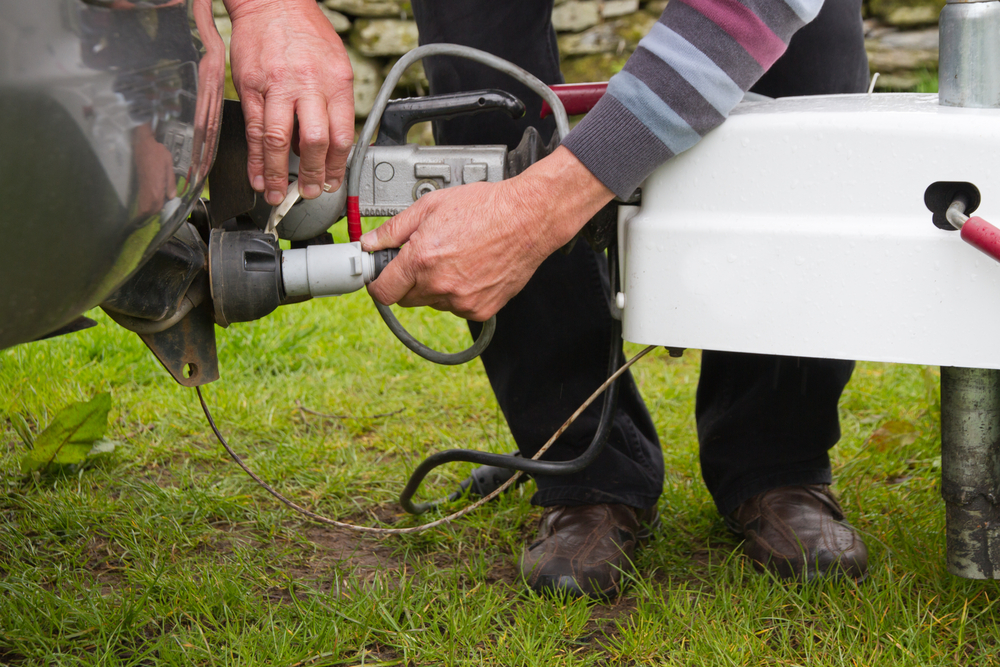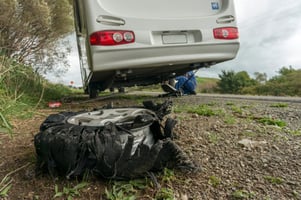How to keep your caravan’s fridge in tip-top condition
This year, whether you’re planning a long summer road trip across the UK or you’re heading abroad with your caravan in tow, it's important to make sure your road lights are in perfect working order. Not only is it a legal requirement, it’s essential for your safety too.
In this article, we’ll cover the key things you need to know about road lights when towing your caravan, from wiring and warning systems to making sure you're using the tools and equipment you've got in the right way. Let's get into it...
Why your road lights need to be working properly
Caravans that are towed in the UK by a vehicle are legally required to have lights that match the towing vehicle's lights, such as the brake lights, reversing lights, indicator lights and tail lights. These lights are connected to the towing vehicle via a 7-pin or 13-pin electrical plug, depending on the vehicle and caravan. Having these in place obviously ensures that other drivers can see your caravan and anticipate your movements, particularly in low lighting or poor weather conditions. The law requires all of these lights to be functional whenever you’re towing, day or night.
You can purchase a wiring tester to verify that all the electrical circuits are working correctly after installation, and before towing. You can use the wiring tester when sat in the driver’s seat, for ease, and you should do this check every time you make a journey.

Audible or visual indicator warning devices
You should also have an audible or visual warning device linked to the caravan’s indicator wiring. This system lets the driver know if the caravan’s indicators are working correctly - many vehicles will emit a distinct sound or show a specific dashboard light when the trailer indicators are functioning, and a different warning if they fail.
If your towing vehicle doesn’t provide this, you may need to fit an aftermarket solution. Doing this type of check is especially important before you head out on the road, as indicator failures can easily go unnoticed.
Check your towing covers!
If you’re using a towing cover on your caravan, which is great for protecting against road debris, stones, the weather and suchlike, you need to make absolutely sure it doesn’t obscure any of the lights. Some covers can slip or start to sag in motion, especially in windy conditions, so always double-check once you’ve fitted it and before every new journey. The obstruction of lights is a traffic offence and could result in a fine - or worse, if an accident occurs. Some towing covers have got LED lights built in to them, to help with visibility.

LED road lights and vehicle compatibility
LED lighting is increasingly common on modern caravans, thanks to its durability and energy efficiency. However, not all towing vehicles are compatible with LED systems out of the box, as the electrical systems on some vehicles may not correctly detect the lower current draw of LED lights, leading to dashboard errors or the lights not working properly.
To avoid this, check whether your towing vehicle is LED-compatible. If it’s not, you might need to get a special adaptor or load resistor to ensure the lights work as they should.
Going abroad? Check the rules before you go…
Are you planning a European adventure? Don’t forget that different countries have different road rules. Some require additional equipment onboard such as reflective stickers, warning triangles and even fire extinguishers - but one common requirement is that headlights must be adapted for driving on the right-hand side of the road.
This means you’ll need to fit headlight beam adapters to prevent blinding any oncoming drivers. Also, check whether your caravan’s lighting system meets the country's standards, particularly if you’ve got LED lights or a non-standard wiring setup. A quick online check before your trip could save you from unwanted issues at border crossings or during roadside checks.
Check your connections
As we said, your caravan connects to the towing vehicle via a 7-pin or 13-pin plug and it’s essential that this plug is secure, free from corrosion and dirt, and properly connected every time. A loose or dirty connector can cause intermittent lighting failures, which are difficult to spot while driving and also dangerous on the road.
To help with this, you can clean the pins with an electrical contact cleaner, and do be sure also to check the cable isn’t strained nor dragging on the road when you are driving.

Reflectors and high-level brake lights
In addition to your basic road lights, your caravan must have two red rear reflectors fitted. In many cases, a high-level brake light (particularly for newer models) might be fitted, so you’ll need to make sure this is fully-functional, too.
Making sure your road lights are working properly is a crucial part of safe caravan towing. Before every trip, make it a point to do a full check of all your lights, and always ensure your setup is compliant with the law, both at home and abroad.







